Submitted by WA Contents
Beomki Lee’s COLORWAY proposes a new passageway in urban fabric shaped by the public interaction
United States Architecture News - Jul 26, 2016 - 12:24 22614 views
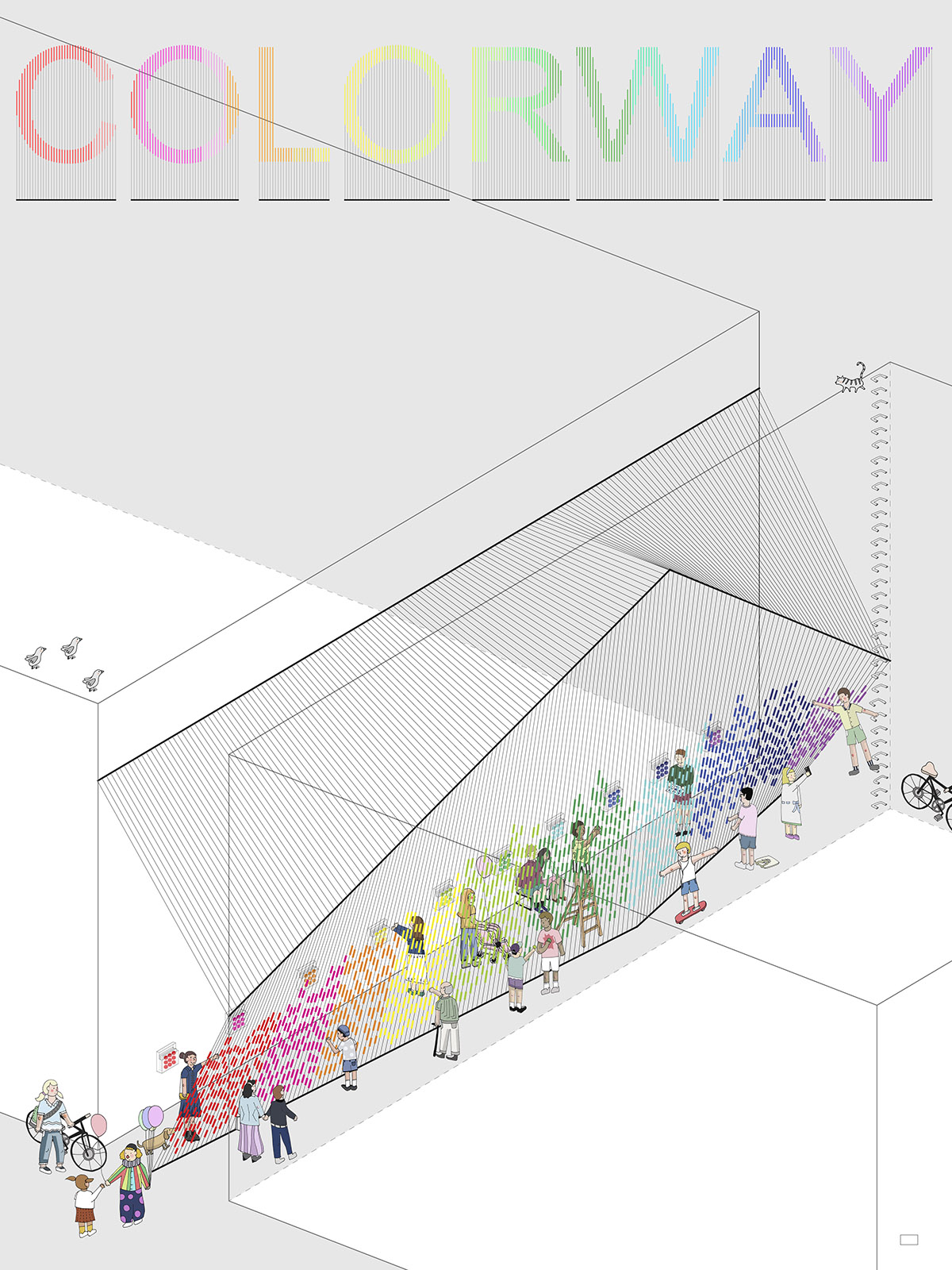
COLORWAY is a new passageway created by the community efforts, proposed by New York-based designer and artist Beomki Lee. Beomki Lee's project seeks to redefine the notion of passageway and to find a way for revitalizing negative spaces in urban fabric, by offering human scaled architecture and encouraging the public to create their own spaces.
The passageway in urban fabric has been considered as remnant space in-between adjacent architectures rather than occupiable space within urban fabric. This restrained way of thinking has curtailed its nature as activity-negative space in the city. However, COLORWAY not only offers architecture designed in human scale but also fosters a method for creating activity-positive space by allowing people to color their journeys.

User-manual for the passageway
The architect explains his design approach in 2 phases: Phase I - Architecture in Human Scale- Three simple angled bars are fixed on both sides of the existing walls and on the ground of the passageway. By manipulating the depth and height of each bar within the limits of maximum/minimum dimensions for people to pass and reach, the bars are woven together with string that creates straight and curved spaces, allowing people to experience different spatial conditions with every step.
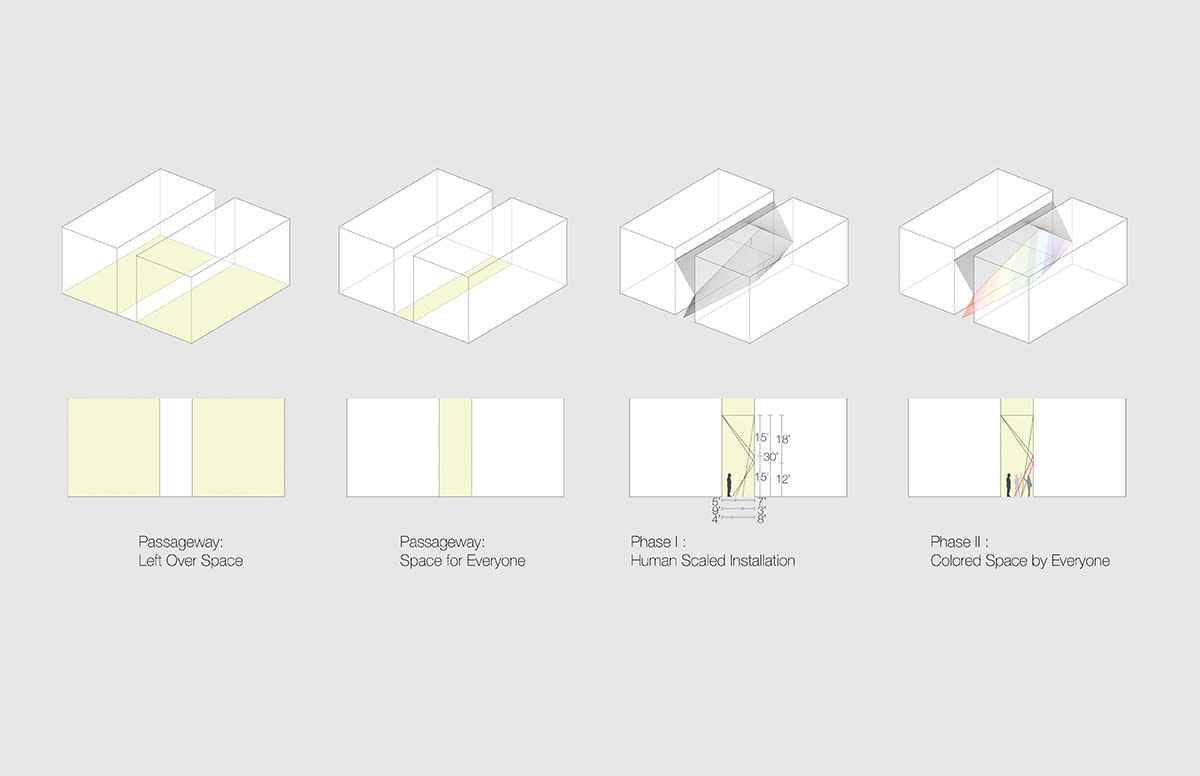
Design diagram is created to understand the first phase how the passageway is shaped
Phase II - Participatory Program for the Community- The public is welcome to visit and participate in coloring their space by themselves. A palette of colored fabric adhesives Fabric stickers are arranged by color on the existing wall, so that the public can select and apply colors to the proposed architecture. As they get to the other side, people color and create activating positive futures of their own passageway.
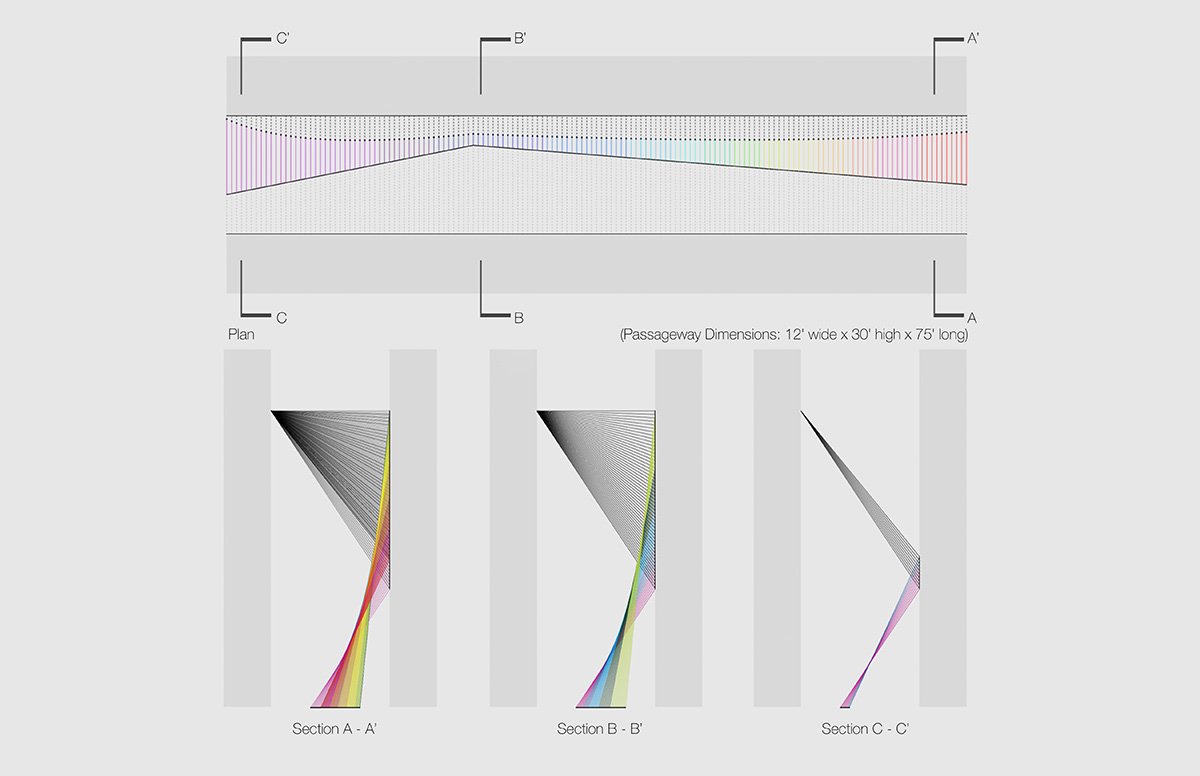
Plans and sections of the COLORWAY
COLORWAY promotes the cross-block connections by generating new urban spaces, experiences, and movements. These are aimed at promoting a more cohesive community and enriching the lives of everyone living within the city.

Axonometric drawing of the COLORWAY
Beomki Lee is an Academic Member of World Architecture Community, Green Showers and Embraced Quietude - Bathhouse In Serra Da Estrela are the two projects presented on his project page.
Beomki Lee designed [ME]morial as part of his 2015 M.Arch Thesis Project in MIT, searching new archetypal relationship between collective memory and a multitude of traditional memorials, “[ME]morial” introduced a new concept in memorial architecture based on the reinterpretation of Freud’s and Bergson’s ideas of memory.

Gathering phase
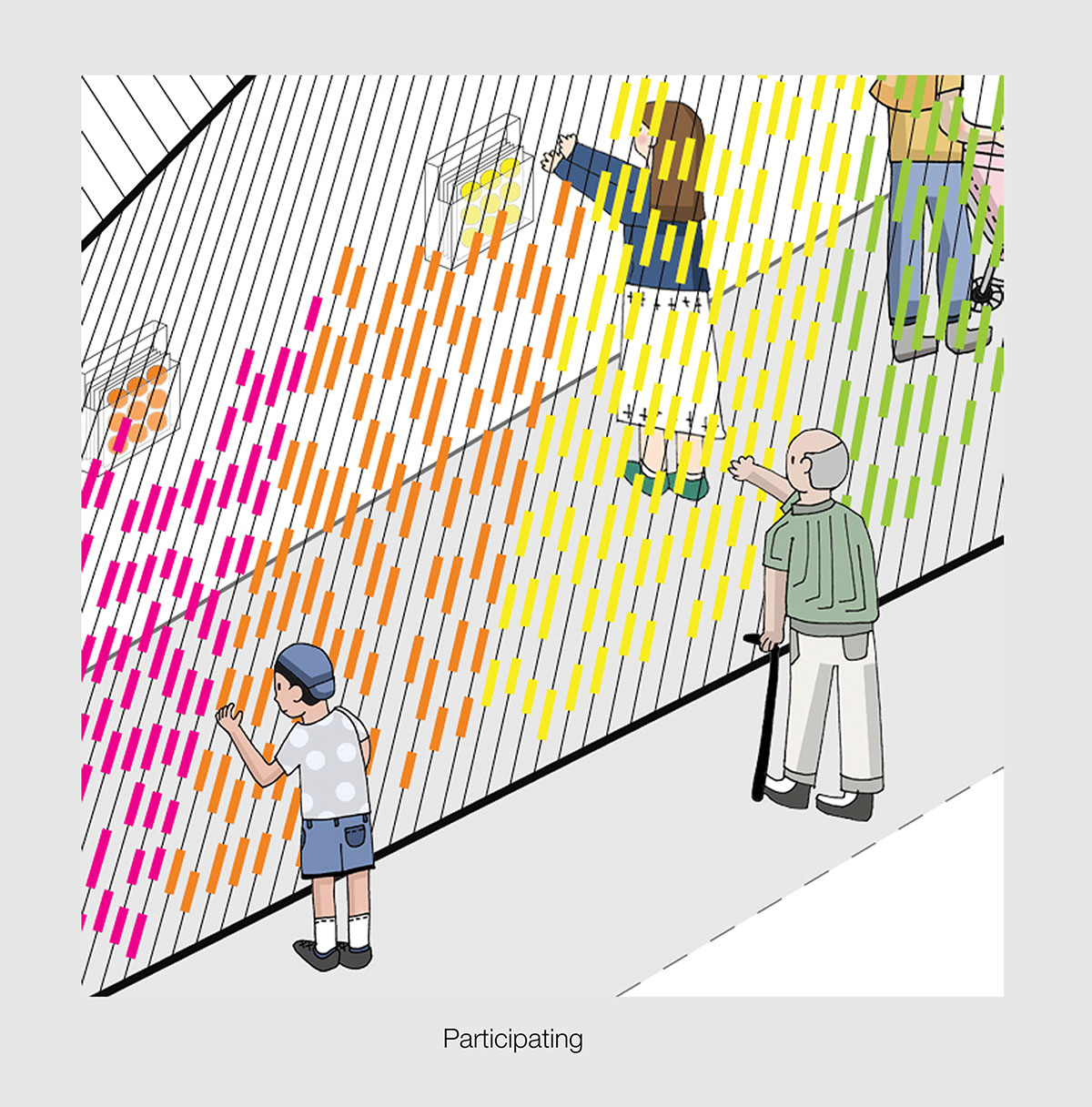
Participating process with colourful stickers
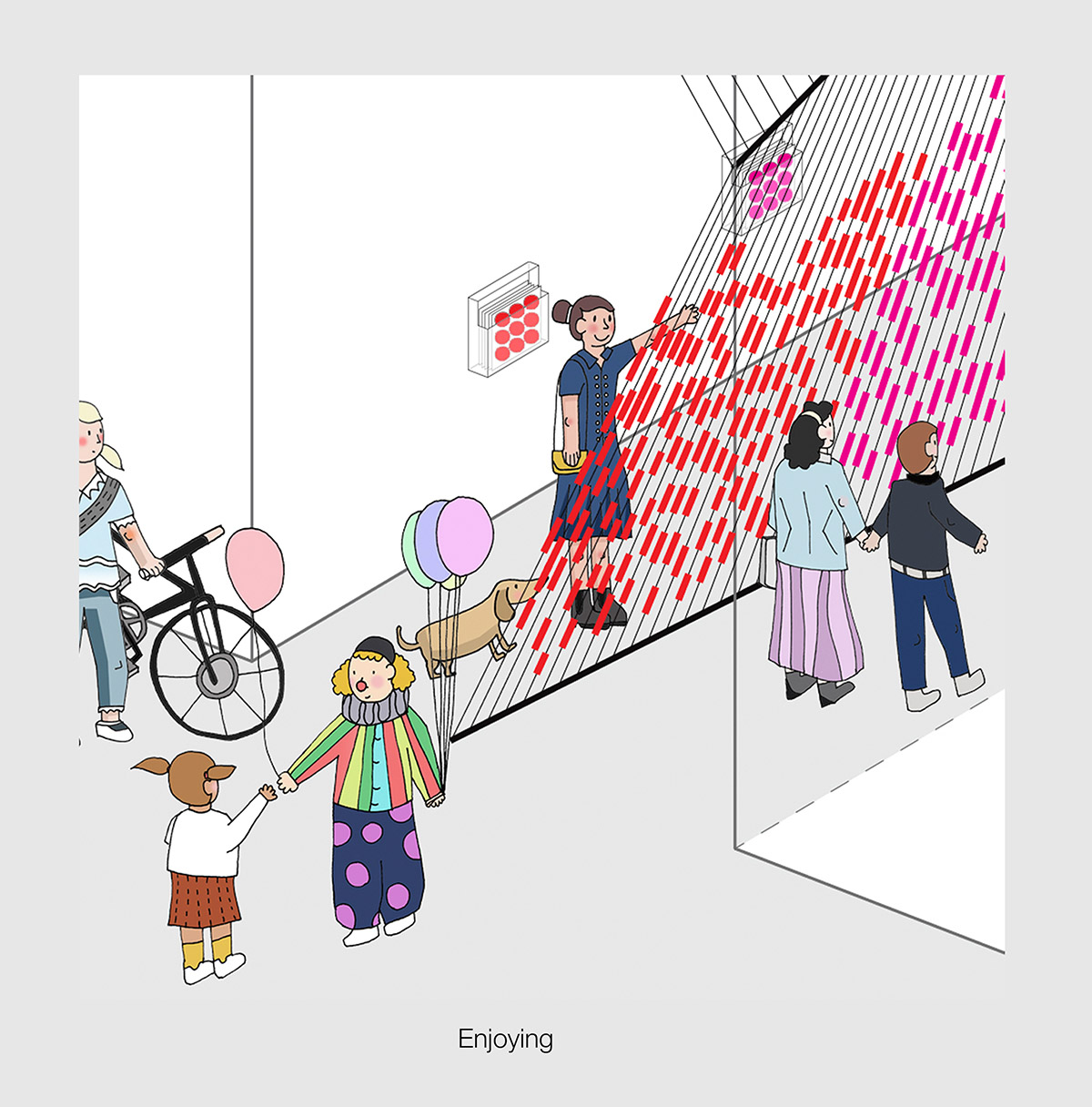
The community enjoying with the stickers

The community sharing their own structure's visuals
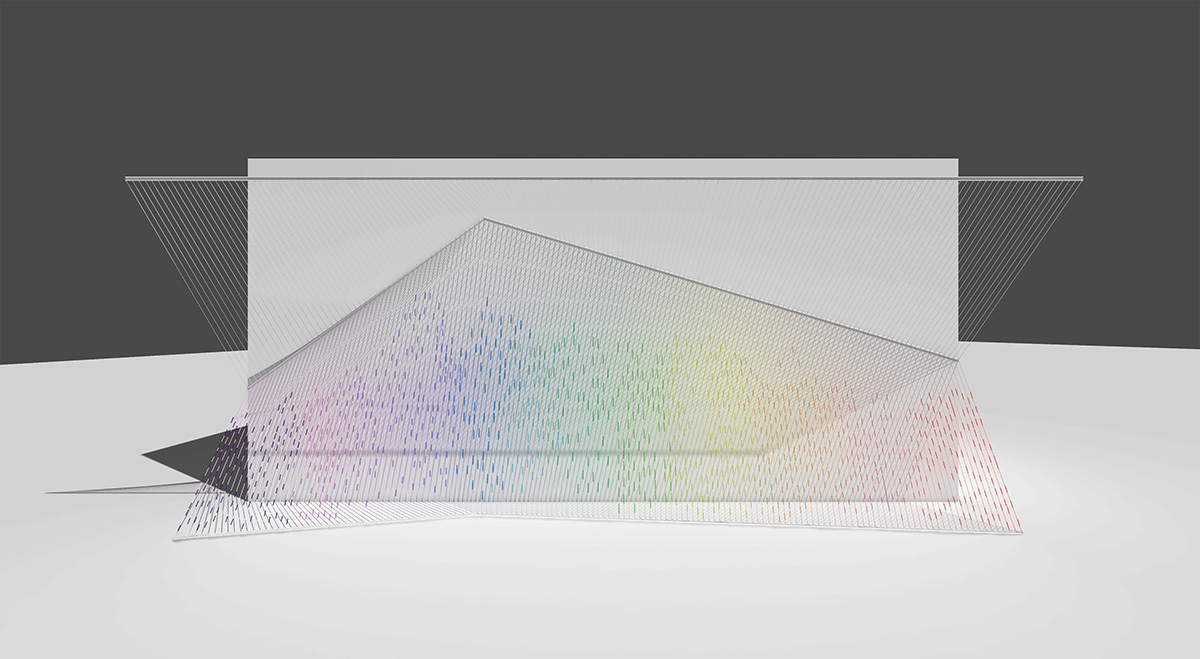
Perspective view
Project Facts
Project Title: COLORWAY
Designer: Beomki Lee
Year: June 2016
Passageways Competition Finalist
All images © Beomki Lee
> via Beomki Lee
